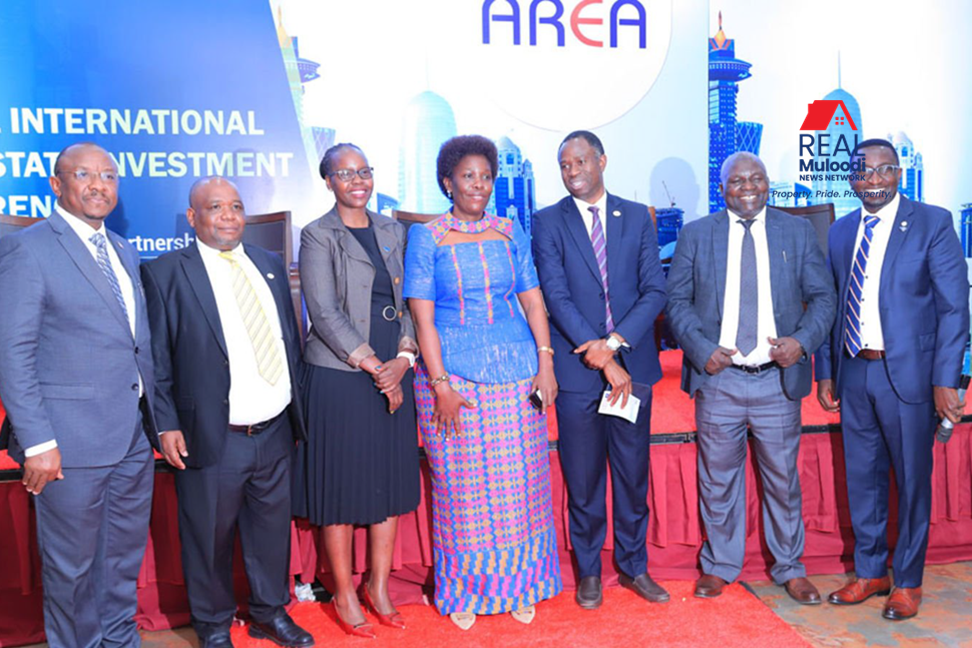UGANDA, Kampala | Real Muloodi News | The long-anticipated real estate Bill aimed at regulating Uganda’s real estate sector remains pending cabinet approval, raising concerns among industry stakeholders. This legislation is designed to regulate and license brokers, agents, managers, and developers to streamline the sector and mitigate issues such as land fraud and speculative pricing.
Ms. Shirley Kongai, president of the Association of Real Estate Agents Uganda (AREA), stated that the lack of an approved real estate Bill continues to deter international investors, limiting the sector’s growth and its contribution to economic development. Kongai revealed that since 2008, AREA has actively advocated for the Bill to address inefficiencies and fraud in the real estate space.
“We have attracted international players into the real estate sector, but they often highlight the absence of a regulated framework, which undermines their confidence in investing here,” said Kongai.
The proposed real estate Bill is expected to introduce a licensing system for professionals in the sector, ensuring accountability and standardized practices. It will also regulate real estate development projects to curb fraudulent activities, instill consumer confidence, and create a professional environment conducive to local and international investments.
Government Response to Bill Approval
Lands Minister Judith Nabakooba assured stakeholders that the government is progressing toward instituting the law. Nabakooba emphasized that consultations and benchmarks for the Bill are nearing completion, with a return to the cabinet anticipated soon.
“Our real estate Bill is on track. After addressing key guidelines and gathering necessary feedback, we are confident it will soon move forward for approval,” Nabakooba stated.
She also stressed the importance of innovative financing mechanisms to support the largely privately funded real estate sector. The government is exploring avenues to collaborate with the industry to bolster its growth and address existing challenges.
“With the housing deficit at approximately 2.4 million units, according to the UN-Habitat 2020 report, addressing the financing gap in real estate is crucial. We aim to ensure this sector thrives while meeting the growing demand for housing,” Nabakooba added.
Uganda faces a significant housing deficit that continues to grow amid rapid urbanization. The absence of a governing framework in the real estate sector has contributed to speculative pricing and consumer mistrust. Many investors refrain from entering the market due to concerns over unregulated practices.
Kongai noted that without the real estate Bill, there are no standardized charges or mechanisms to hold brokers and developers accountable, leaving consumers vulnerable to fraud.
“The lack of regulation discourages investors and perpetuates speculation. This legislation is vital to building trust between brokers and clients and creating a predictable investment environment,” Kongai said.
Call for Licensed Real Estate Professionals
Mr. Frank Oti, Global Ambassador to Africa for the National Association of Realtors (NAR), highlighted the need for professional education and licensing in the real estate sector. Oti emphasized that a regulated framework would establish trust and ensure professionals possess the requisite knowledge to serve clients effectively.
“In Africa, real estate is a critical vehicle for intergenerational wealth transfer. However, many involved in this sector lack proper training and licenses, which undermines trust and professionalism,” Oti stated.
He reiterated the importance of passing the real estate Bill to formalize the roles of brokers and developers, enabling Uganda to attract substantial investment and secure its real estate industry.
The 13th Annual International Real Estate Investment Conference, themed “Exploring Real Estate Partnerships,” was held on Thursday 5th December 2024 and officiated by Lands Minister Nabakooba. The event attracted investors from various countries and underscored the urgent need for effective regulation to unlock Uganda’s real estate potential.
The conference served as a platform for stakeholders to discuss strategies for fostering partnerships and addressing the sector’s challenges. Participants highlighted the delayed approval of the real estate Bill as a significant hindrance to achieving sustainable growth in Uganda’s real estate industry.
Looking Ahead
As Nabakooba reiterated, the sector’s growth and development hinge on instituting a law that establishes trust and professionalism across the real estate landscape. The approval of the real estate Bill is expected to be a pivotal step in transforming Uganda’s real estate sector.
By introducing a regulatory framework, the Bill aims to attract local and international investments, curb fraud, and address the housing deficit.
The government’s ongoing efforts to finalize consultations and benchmarks indicate progress, but stakeholders urge swift action.
READ MORE LIKE THIS:



